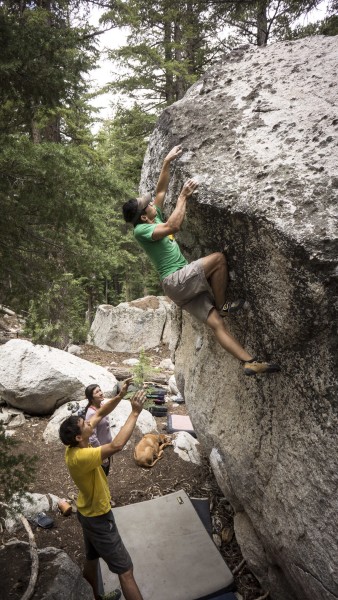 Work is a four-letter word.
Work is a four-letter word.
But…without that hard earned cash, funding your next climbing trip would be impossible. There are many jobs that lend themselves to the climbing lifestyle. Career options vary from riggers to doctors to social media workers. There are lots of good trade options for climbers. We spoke with a few serious climbers to see what they do to pay the bills.
Many climbers are in the medical profession. Doctors, nurses, x-ray technicians and physician assistants split their time between the clinic and the crag. While Doctors and PAs spend a better part of their twenties in classrooms and hospitals and have limited time for climbing during their studies, when they become established they have much more flexible schedules.
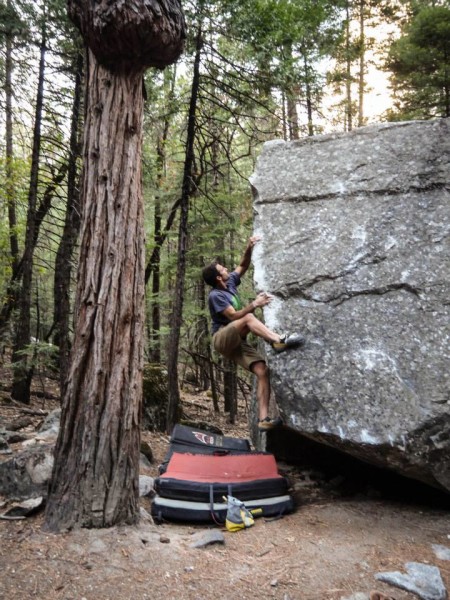 “I work 10-12 days a month on average,” said Michael Pang, an internal medicine doctor in Scottsdale Arizona. Pang, a climber of 17 year and doctor for as long, cited the pay as being one of the benefits. However, there are some downside, such as being regularly asked for medical advice. “One time some random woman came looking for me at my campsite at Indian Creek while I was eating breakfast and asked me to look at a rash on her son’s chest–that was slightly annoying.”
“I work 10-12 days a month on average,” said Michael Pang, an internal medicine doctor in Scottsdale Arizona. Pang, a climber of 17 year and doctor for as long, cited the pay as being one of the benefits. However, there are some downside, such as being regularly asked for medical advice. “One time some random woman came looking for me at my campsite at Indian Creek while I was eating breakfast and asked me to look at a rash on her son’s chest–that was slightly annoying.”
“I work for 3 months then go to Patagonia for 6 weeks, or I work for a couple of months and go to Yosemite and The Sierra for a few weeks,” said Jason Lakey who works as a travel nurse in California. “I am an ER nurse and lately I have been working in various Central Valley emergency rooms. I can train at gyms when I’m working and run to Yosemite on my days off. It’s hard, stressful work though and not for the faint of heart. Working a night shift in a busy ER can be tougher than a 1 day ascent of the Zodiac.”
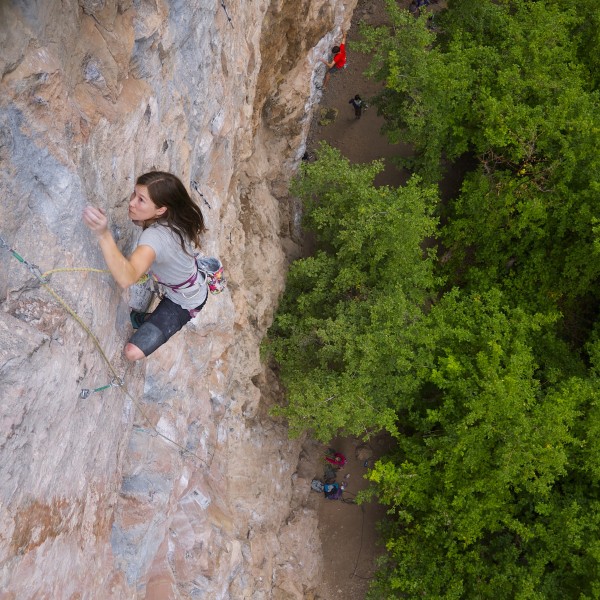 We sat down with lawyers and academics. However a defense attorney from Boulders lamented that it’s far too much work. “No one wants this job,” the lawyer stated, tired from too many court cases. A Salt Lake City climber with a doctorate in neuroscience expressed similar concerns. Working up to twenty-two days a month up and twelve plus hours a day has exhausted him to the point where he described science with a number of non-quotable expletives.
We sat down with lawyers and academics. However a defense attorney from Boulders lamented that it’s far too much work. “No one wants this job,” the lawyer stated, tired from too many court cases. A Salt Lake City climber with a doctorate in neuroscience expressed similar concerns. Working up to twenty-two days a month up and twelve plus hours a day has exhausted him to the point where he described science with a number of non-quotable expletives.
While the medical industry, law, and academia excite some, most climbers choose other positions. Social media, graphic design, photography, coding and remote computer work is another great option. These can be great jobs as they allow climbers to live anywhere.
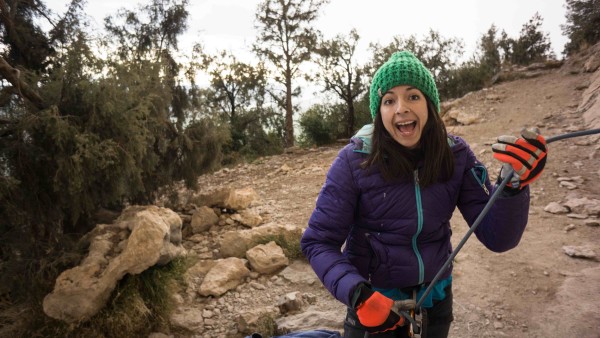
Tara Reynvaan has stayed in the New River Gorge, Ceuse, Oliana and Smith Rock, all while working remotely. Courtney Miyamoto has traveled across the states working from coffee shops. Though Reynvaan is able to work from these amazing climbing locations, “It’s rare that I don’t work 5 days a week Mon-Friday. Don’t take many vacations,” said Tara. The opposite is true for Miyamoto. “When you don’t work very often it’s hard to motivate,” said Courtney who works two to three days a week.
“It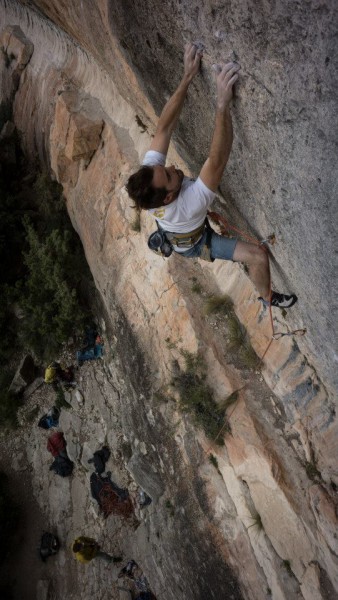 ’s amazing when you get the right balance of working/climbing/fun set up,” said Cameron Maier, who works as a videographer and photographer. “At the start, going from gig to gig is tough and can make you wonder what the hell you’re doing. You have to really love shooting images more than climbing, because your friends are climbing all day while you’re pushing the shutter.”
’s amazing when you get the right balance of working/climbing/fun set up,” said Cameron Maier, who works as a videographer and photographer. “At the start, going from gig to gig is tough and can make you wonder what the hell you’re doing. You have to really love shooting images more than climbing, because your friends are climbing all day while you’re pushing the shutter.”
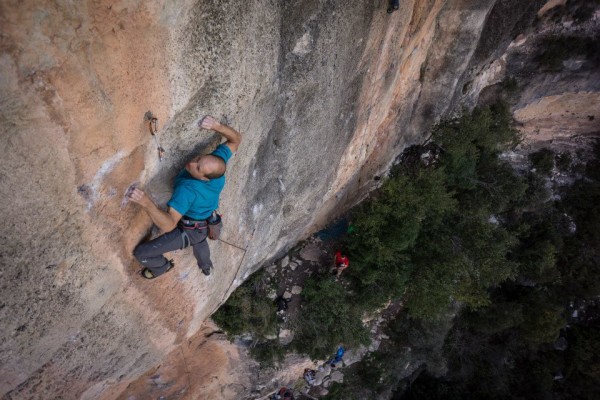 Some climbers prefer not to stick to a specific career and instead work piecemeal. One climber responded that he had worked as a waiter, office lackey, cheese maker, and solar panel installer, cook and freelance writer. Most prefer steady work, but being a jack of all trades can be great for the traveling climber.
Some climbers prefer not to stick to a specific career and instead work piecemeal. One climber responded that he had worked as a waiter, office lackey, cheese maker, and solar panel installer, cook and freelance writer. Most prefer steady work, but being a jack of all trades can be great for the traveling climber.
When looking for a career to facilitate your climbing lifestyle there are many options, from jobs that require a significant amount of training to resigning yourself to a life of seasonal labor. The trick is finding the right balance of time off, career satisfaction, and money.
Good Luck!

